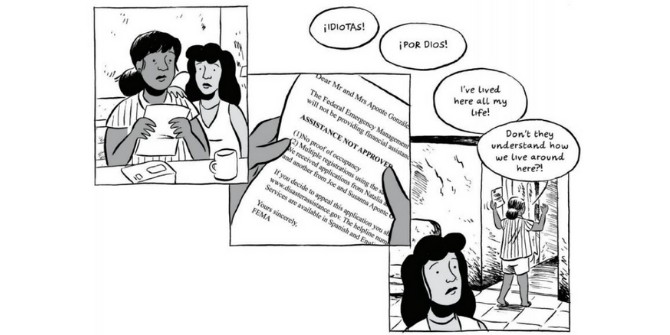 Uncertainty is part of science. But is scientific uncertainty a reason to worry about the reliability of findings? Tabitha Innocent presents a new public guide, Making Sense of Uncertainty, where scientists are challenging the idea that uncertainty compromises validity. Furthermore, the guide argues communicating uncertainty will help build public and political confidence in decision-making which incorporates the uncertainty into constructive action.
Uncertainty is part of science. But is scientific uncertainty a reason to worry about the reliability of findings? Tabitha Innocent presents a new public guide, Making Sense of Uncertainty, where scientists are challenging the idea that uncertainty compromises validity. Furthermore, the guide argues communicating uncertainty will help build public and political confidence in decision-making which incorporates the uncertainty into constructive action.
Begin talking to researchers from climate science, epidemiology or geology and you will soon come across a common problem with talking about uncertainty. Researchers use uncertainty to express how confident they are in results, or to describe the boundaries of what is known and unknown, but in everyday language uncertainty is heard as ‘unreliable’.

Here at Sense About Science we had heard over and over from researchers trying to find ways to get a handle on this, so they could better communicate their work with researchers in other fields, the media, policy makers and so on. We asked scientists working in these fields and others why it is that the uncertainty in these areas doesn’t worry them. Sharing some of this insight in the guide will, we hope, help people to engage more constructively with these debates.
Why does any of this uncertainty matter for anyone outside a particular field of research? Discussions of uncertainty can seem esoteric, academic, and not directly relevant to everyone else. But if people are discouraged by the very idea of uncertainty, then we miss out on important discussions: about weighing up the risks and benefits of new treatments, what action to take to mitigate the impact of earthquakes, or how individuals and governments should act in response to sudden changes in temperature or sea level or the latest pandemic flu threat.
Some points came across emphatically from all the researchers involved in putting the guide together. Top of the list was that the presence of scientific uncertainty does not mean we know nothing. On the contrary, as Professor Angela Mclean says, “if you can quantify the uncertainty around a statement then you have gone a long way towards understanding what is going on.” And equally, the existence of uncertainty doesn’t mean that anything could be true. There are, though, instances where uncertainty is abused to undermine evidence in this way, from alternative cancer treatments to anthropogenic CO2 not changing the atmosphere.
“Uncertainty is simply part of our understanding. Sometimes the details matters, sometimes they don’t, but uncertainty is not a barrier to taking good decisions. Nor is it unfamiliar. We all take decisions under uncertainty every day.” – Dr David Stainforth
Uncertainty is not a barrier to action
Another thing that came up time and again, is the need to recognise that we do often have enough information to make a decision or take action – operational knowledge. When it comes to making policy the question that’s often asked, ‘are we certain?’ would be much better replaced by asking ‘do we know enough?’ – or, in some cases, ‘what’s the best decision based on the information we do have?’
There isn’t a single answer for all decisions here – we look for more certainty to make some decisions than others. However, as Professor David Spiegelhalter puts it, “policy-makers should be able to be open and honest about scientific uncertainty, while still being confident about the appropriate actions to be taken.” This guide takes us a step onwards from the academic discussion to a level of specialised commentary – and will, we hope, help people who need to talk about uncertainty: the researchers who need to talk about their work, and others who have to use and explain scientific uncertainty in the media and for policy making.
We’ll be continuing to work with researchers around this. It’s not easy to move outside academic debates about scientific uncertainty amongst specialists to look at the broader implications and bring these discussions to a more public space. But a more constructive discussion about uncertainty in society would benefit us all, wherever you start from.
You can download an electronic copy of Making Sense of Uncertainty here.
Note: This article gives the views of the author, and not the position of the Impact of Social Science blog, nor of the London School of Economics. Please review our Comments Policy if you have any concerns on posting a comment below.
Tabitha Innocent is Scientific Liaison at Sense About Science, a charity that helps people to make sense of science and evidence.







What? I have never read a scientific paper in which the uncertainties were not explicit. This sounds like an argument for the “god of the gaps” fallacy.
One way of simplifying a complex system is to allow some degree of uncertainty in its description. This will reduce precision but the relevance to the original system is maintained provided information loss is at manageable loss.